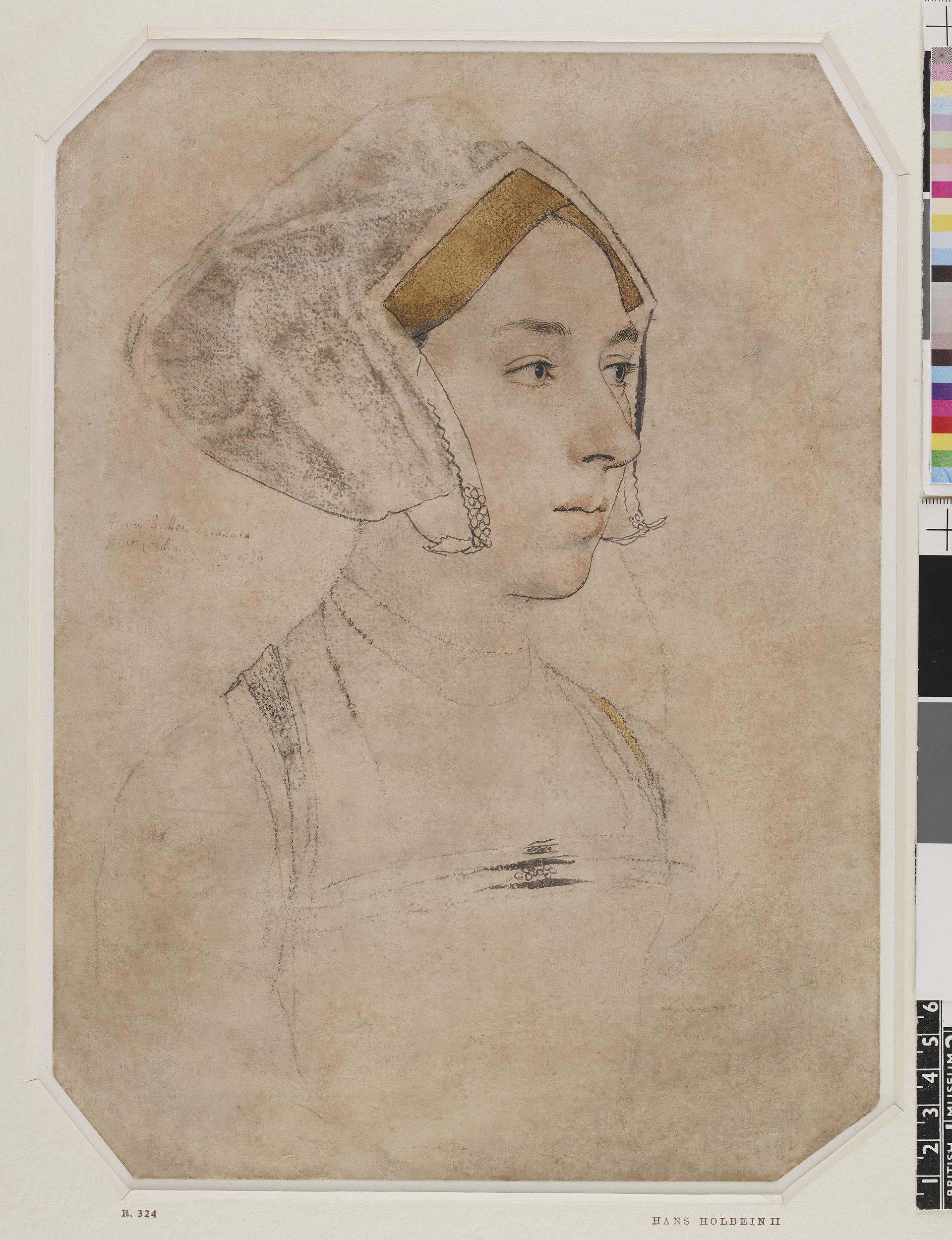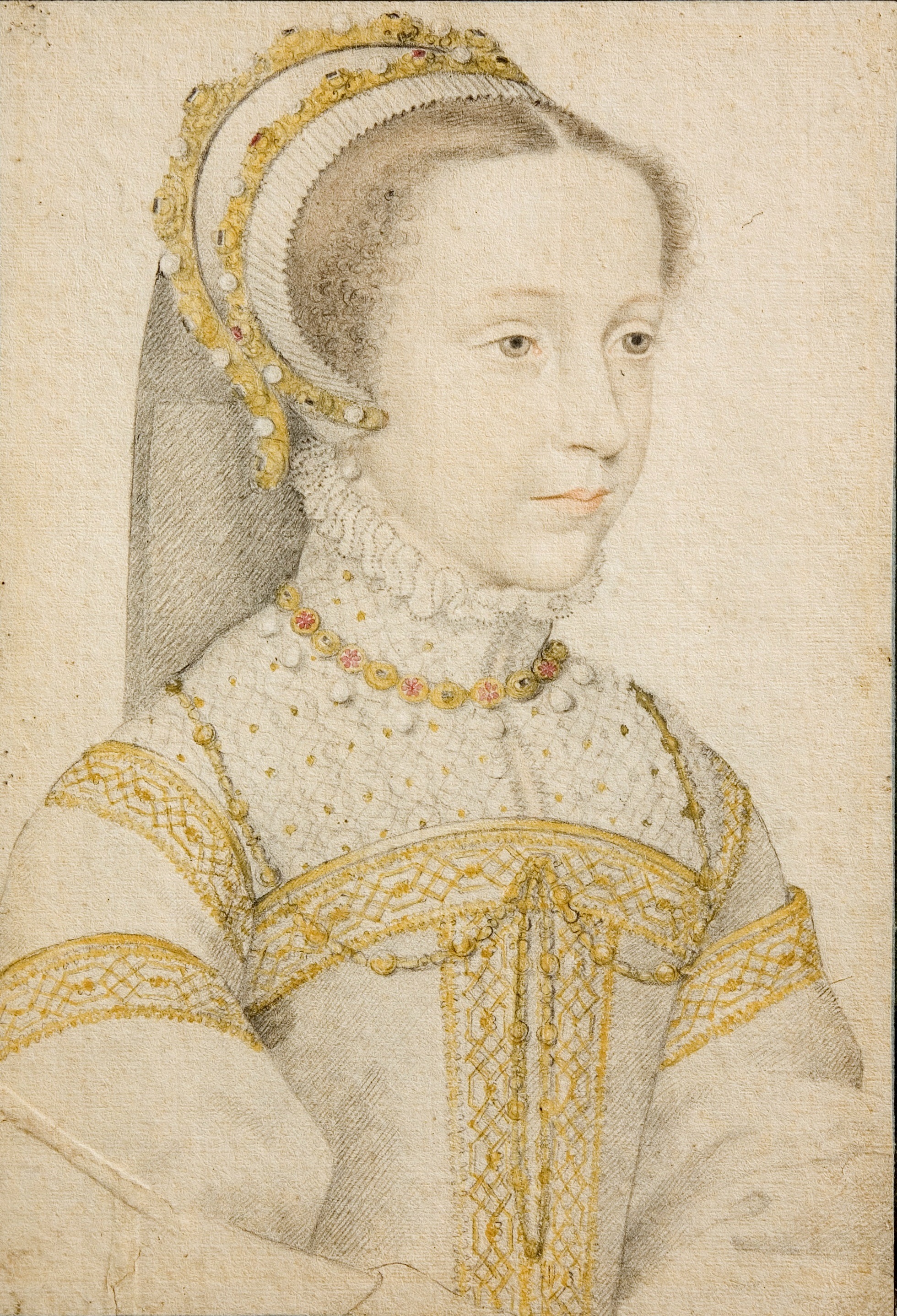Queen Elizabeth I of England (and Ireland), born in 1533, coronation in 1559, died in 1603. She was the last monarch of the Tudor dynasty, and did not produce any heirs.
https://en.wikipedia.org/wiki/Elizabeth_I_of_EnglandElizabeth's reign is known as the Elizabethan era. The period is famous for the flourishing of English drama, led by playwrights such as William Shakespeare and Christopher Marlowe, and for the seafaring prowess of English adventurers such as Francis Drake. Some historians depict Elizabeth as a short-tempered, sometimes indecisive ruler, who enjoyed more than her share of luck. Towards the end of her reign, a series of economic and military problems weakened her popularity. Elizabeth is acknowledged as a charismatic performer and a dogged survivor in an era when government was ramshackle and limited, and when monarchs in neighbouring countries faced internal problems that jeopardised their thrones.
Elizabeth’s character was something of a mystery to most people in 1558. She had learned early on to keep her own counsel, control her emotions, and to behave circumspectly in public, thus giving the lie to any adverse rumours about her. [...] Always dignified and stately in her bearing, she could also be vain, willful, dictatorial, temperamental and imperious. Her sense of humour sometimes had a malicious edge to it, and she was capable of making sharp, cutting remarks, yet she could be warm and compassionate when occasion demanded, particularly towards the old and the sick, the bereaved and those who had suffered misfortune. She had courage, both in her convictions and in the face of danger, and was not above metaphorically thumbing her nose at her enemies. Possessing an innate humanity, she was not normally cruel – unlike most rulers of her day – and many regarded her as being unusually tolerant in that age of religious dogmatism. She saw herself as a paragon of ‘honour and honesty’ who dealt with others in a straightforward manner and would stand by ‘the word of a prince’, but the reality was somewhat different. She could prevaricate, dissemble and deceive as well as any other ruler of her time. The need constantly to economise had made her so careful with money as to appear parsimonious, and to the end of her life she would avoid spending it if she could. Caution was her watchword in all her dealings: she took no more risks than she had to. She had learned in a hard school.[Elizabeth] had a formidable intelligence, an acute mind and a remarkably good memory. Ascham declared he had never known a woman with a quicker apprehension or a more retentive memory. Her mind, he enthused, was seemingly free from all female weakness, and she was ‘endued with a masculine power of application’; he delighted in the fact that she could discourse intelligently on any intellectual subject.Elizabeth’s physical health was robust, and she had boundless energy, but her troubled adolescence had made her neurotic and she suffered intermittent panic attacks, irrational fears and bouts of emotional paralysis, when she was incapable of knowing what to do. She could not tolerate loud noises, although she had a quick temper and was not above shouting and swearing at her hapless advisers.The Queen was an exacting and demanding mistress who expected high standards to prevail in her household. She disliked employing anyone who was ugly, and once turned down an application for a position from a man whose handsome face was marred by a missing tooth.There is no doubt that [Elizabeth] found it an advantage being a young, marriageable female in a court of men: flirtation was her life blood, and she was well aware that her attraction for men was not entirely due to her exalted status. Like her mother, she knew how to charm the opposite sex into thinking her beautiful by her wit and vivacity, her lively conversation and her expressive eyes. Her personality was compelling and charismatic: she was, as one courtier claimed, at once ‘so effervescent, so intimate and so regal’.[Elizabeth] had also learned to use her femininity to advantage, artfully stressing her womanly weaknesses and shortcomings, even indulging in effective storms of weeping, whilst at the same time displaying many of the qualities most admired in men. She had wisdom, common-sense, staying power, integrity and tenacity, which, along with the ability to compromise, a hard-headed sense of realism, and a devious, subtle brain, would make her a monarch worthy of respect. Men might despise her sex, and they might mistake her finely-calculated sense of timing for dithering, but they learned to appreciate her abilities, even if they did not always understand how her mind worked, her unpredictability, her tendency to unconventional behaviour, and – above all – her ability to change her mind far more than they deemed necessary, or put off making decisions for what seemed an inordinate length of time.Sir John Hayward wrote: If ever any person had either the gift or the style to win the hearts of the people, it was this Queen. All her faculties were in motion, and every motion seemed a well-guided action; her eye was set upon one, her ear listened to another, her judgement ran upon a third, to a fourth she addressed her speech; her spirit seemed to be everywhere. Some she pitied, some she commended, some she thanked, at others she pleasantly and wittily jested, condemning no person, neglecting no office, and distributing her smiles, looks and graces so artfully that thereupon the people again redoubled the testimony of their joys, and afterwards, raising everything to the highest strain, filled the ears of all men with immoderate extolling of their prince.(quotes from The Life of Elizabeth I by Alison Weir)




 Reply With Quote
Reply With Quote
 -
- 
 (as per tcaudilllg)
(as per tcaudilllg)















